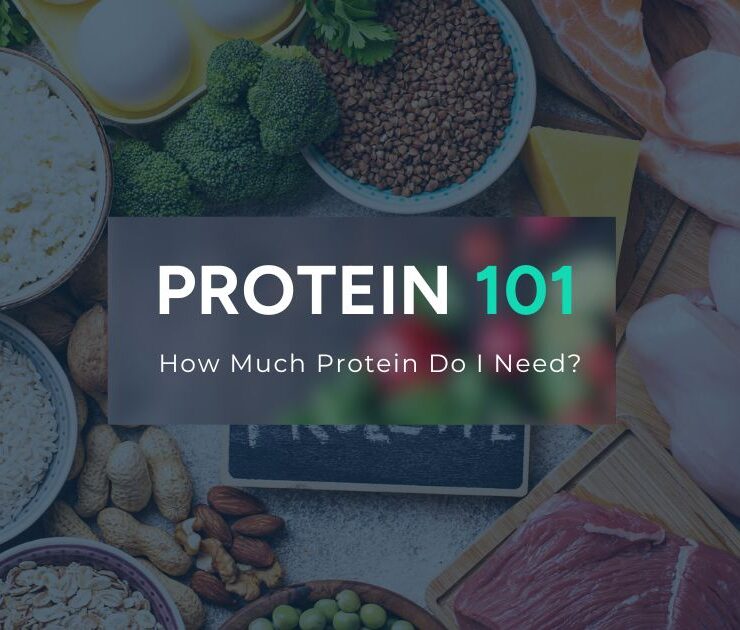Maximizing Muscle Recovery: The Role of Protein Post Workout

Hadas Gibly, a vibrant force in the Miami wellness community,…
Table of Contents
Having immersed myself in the world of fitness and nutrition after moving here from Israel, I’ve dedicated myself to not just practicing but understanding the deep connections between our bodies and the nutrients we feed them.
Post-workout recovery is an area I’m particularly passionate about, as it’s essential not only for athletes but for anyone engaged in any form of physical exercise. Recovery isn’t just about taking time off; it’s about actively supporting your body’s natural processes to rebuild and strengthen.
Protein post workout plays a critical role in this recovery phase. After a tough workout, our muscles are like sponges—eager to absorb the nutrients that aid in their repair and growth. Protein, composed of essential amino acids, is the key player here. It helps repair the micro-tears in muscle fibers caused by intense or strenuous physical activity, facilitating not just recovery but also growth and strengthening of the muscles.

Join me as we dive deeper into how protein can be your best ally in achieving your fitness goals, ensuring that each workout brings you closer to your optimum health and performance. Let’s turn your post-workout recovery into a powerful leap towards your next workout, making your wellness journey truly spectacular!
How Protein Facilitates Muscle Recovery
When we push our bodies through intense workouts, we’re not just building strength and endurance; we’re also creating small tears in our muscles. It’s a natural and necessary part of getting stronger, but the magic truly happens during recovery. That’s where protein comes into play, stepping in like a skilled healer to repair those micro-tears. As someone deeply invested in both personal training and holistic nutrition, I’ve witnessed first-hand how crucial protein is in this transformative process.
Protein is made up of amino acids, often thought of as the building blocks of our muscles. There are 20 different amino acids, and while our bodies can produce some of them, there are nine that we must obtain through our diet, known as essential amino acids. Among these, branch-chain amino acids (BCAAs) play a particularly critical role in muscle recovery.
BCAAs include leucine, isoleucine, and valine, and they’re unique because they are metabolized directly in the muscles rather than in the liver. This direct action allows them to be more immediately available to repair muscle damage and build new muscle tissue. Leucine, for instance, is a powerhouse in triggering muscle protein synthesis—the process that repairs and rebuilds muscle fibers. This synthesis not only helps repair the damage but also strengthens the muscle, preparing it for future challenges.
Incorporating sufficient high-quality protein in your diet, especially after a workout, ensures that your muscles have access to these essential amino acids. This not only speeds up recovery time but also enhances your overall performance, allowing you to return to your activities with greater strength and less soreness. As we continue to explore the best sources and strategies for protein intake, remember that giving your muscles the nutrients they need is giving yourself the best chance to thrive in your fitness journey.
Optimal Protein Intake for Recovery
Determining the optimal amount of protein to consume post-workout can vary significantly depending on your fitness level, goals, and the intensity of your exercise routines. As someone who navigates the worlds of both intense physical training and holistic nutrition here in Miami, I’ve seen how personalized this aspect needs to be.
Guidelines on Protein Intake
For most individuals, a general guideline is to consume about 20-40 grams of protein after your workout to effectively aid in muscle recovery. However, let’s break that down further based on different levels of activity:
- For light exercisers and beginners: If your workouts are more moderate or you’re just starting out, closer to 20 grams of protein post-workout is sufficient to support muscle repair without overwhelming your system.
- For regular gym-goers: If you hit the gym regularly with a mix of strength and cardio, aiming for about 25-30 grams after workouts can help optimize your recovery and muscle synthesis.
- For athletes and those doing heavy resistance training: The higher end of the spectrum, around 40 grams, might be more appropriate. This level supports more significant muscle recovery needs due to the intensity of the workouts.
The Debate Over Protein Absorption
There has been much debate about how much protein the body can absorb at one time. The old belief suggested that the body could only handle about 30 grams per serving, with any excess not being used effectively. However, more recent research indicates that this figure can vary based on several factors including the duration and intensity of the exercise, and even the age of the individual.
Muscle protein synthesis can continue for hours after exercise, and the body can effectively utilize protein ingested during this time. This challenges the notion of a strict “protein maximum” that the body can absorb in one sitting, suggesting instead that the body’s ability to process protein is more adaptable than previously thought.
Practical Takeaway
When planning your post-workout nutrition, it’s essential to consider not just the quantity of protein, but also the timing. While it’s beneficial to consume protein shortly after your workout, the window for effective use is larger than once believed, extending several hours post-exercise. This flexibility allows you to schedule meals and snacks in a way that fits your lifestyle while still maximizing muscle recovery and growth.
Remember, the key is to listen to your body and adjust your protein intake based on your specific needs and the responses you observe from your body. Personalization is crucial in making the most of your nutrition for optimal performance and recovery.
Personalizing Your Protein Intake
Every body is unique, and so are the nutritional needs that come with each lifestyle. Over the years, as a Pilates Master Instructor and a nutrition coach in Miami, I’ve helped clients personalize their protein intake to support their specific fitness journeys. Here are the main factors that can influence how much protein you should be consuming:
- Body Weight: Generally, protein intake recommendations are based on body weight. A common guideline is to consume approximately 0.8 grams of protein per kilogram of body weight for the average sedentary adult. However, if you are active, you may need more to support muscle repair and growth.
- Activity Level: The more you move, the more protein your body needs. Endurance athletes and those involved in heavy strength training might need up to 1.2 to 2.0 grams per kilogram of their body weight.
- Recovery Goals: If you’re recovering from an injury or intense training session, your body may require additional protein to heal and rebuild muscle tissue.
Tips for Calculating Personal Protein Requirements
- Start with the Basics: Calculate your baseline needs with the standard 0.8 grams per kilogram of body weight.
- Adjust for Activity: Increase the amount based on how often and intensely you train.
- Consider Your Health and Age: Older adults or those recovering from illness might need more protein.
- Monitor Your Body’s Response: Pay attention to how your body reacts to different amounts of protein, particularly how you feel after workouts and your overall recovery times.
The Role of Hydration in Protein Processing
Hydration plays a critical role in the effective processing of proteins in your body. Here’s why staying hydrated is essential:
- Dissolution and Transport: Water helps dissolve proteins and other nutrients, making them easier to absorb and transport to where they are needed in the body.
- Aids Digestion: Proper hydration aids in digestion by helping to break down food and absorb nutrients efficiently, including protein.
- Waste Removal: During protein metabolism, the body produces waste products like ammonia and urea. Adequate hydration helps dilute these waste products and facilitates their excretion through the kidneys.
Staying hydrated is not just about drinking water; it’s about ensuring that your body processes protein efficiently and keeps your muscles and other tissues in top condition. I always remind my clients in Miami, where the heat can be intense, that keeping up with their fluid intake is as crucial as their meal planning.
Understanding these dynamics helps you make informed decisions about your diet and hydration, ultimately leading to better health and performance in your fitness and daily activities.
The Importance of Sleep in Muscle Recovery
Sleep is more than just a period of rest—it’s a crucial component of muscle recovery and overall health. As we sleep, our bodies are hard at work, engaging in numerous processes that enhance muscle repair and protein synthesis. This is a critical time when the body produces growth hormone, which plays a key role in tissue growth and muscle repair.
During the deeper stages of sleep, blood flow to the muscles increases, delivering the nutrients and oxygen needed for healing and growth. This is when the effects of your workout come to fruition, as the proteins you’ve consumed are used to repair and build muscle tissue.
Tips for Integrating Good Sleep Practices to Support Recovery
- Establish a Regular Sleep Schedule: Go to bed and wake up at the same time every day to regulate your body’s internal clock, which can help improve your sleep quality.
- Create a Restful Environment: Keep your bedroom cool, quiet, and dark. Invest in a comfortable mattress and pillows to support a good night’s sleep.
- Wind Down Before Bed: Develop a relaxing bedtime routine that may include reading, meditating, or gentle stretching to signal to your body that it’s time to wind down.
- Limit Stimulants: Avoid caffeine and heavy meals close to bedtime, as they can disrupt your sleep cycle.
Conclusion
Throughout this series, we’ve explored the multifaceted role of protein in fitness and recovery, from how it repairs the micro-tears in muscles caused by exercise to how it is absorbed and utilized by the body. We’ve also discussed the importance of tailoring your protein intake to your specific fitness level and recovery needs, and we’ve highlighted the critical roles of hydration and sleep in maximizing the benefits of protein for muscle recovery.
I encourage you to use the information shared to experiment with protein timing and sources to discover what works best for your individual recovery and performance goals. Every body is unique, and finding the right balance can help you not only recover more effectively but also achieve new heights in your fitness journey. Remember, the path to optimal health and peak performance is a personal one—embrace the journey and adjust as you learn what makes your body feel and perform its best.
Hadas Gibly, a vibrant force in the Miami wellness community, brings a unique blend of expertise and passion to the Breathe Miami team. With a decade of experience in the city, her multifaceted career spans being a Tremble Pilates Master Instructor, a dedicated Personal Training Coach, and a Holistic Nutritional Coach. Originating from Israel, Hadas has not only adapted but thrived, becoming a celebrated figure in the Padel world by hosting premier women's tournaments, earning her the title of Miami's Padel Queen. Her holistic approach to wellness, combining rigorous physical training with nutritional wisdom, makes her an invaluable resource for those seeking to transform their lives. At Breathe, Hadas will be penning insightful articles on nutrition and Pilates, as well as curating original events, sharing her philosophy that life should indeed be your fairytale.




